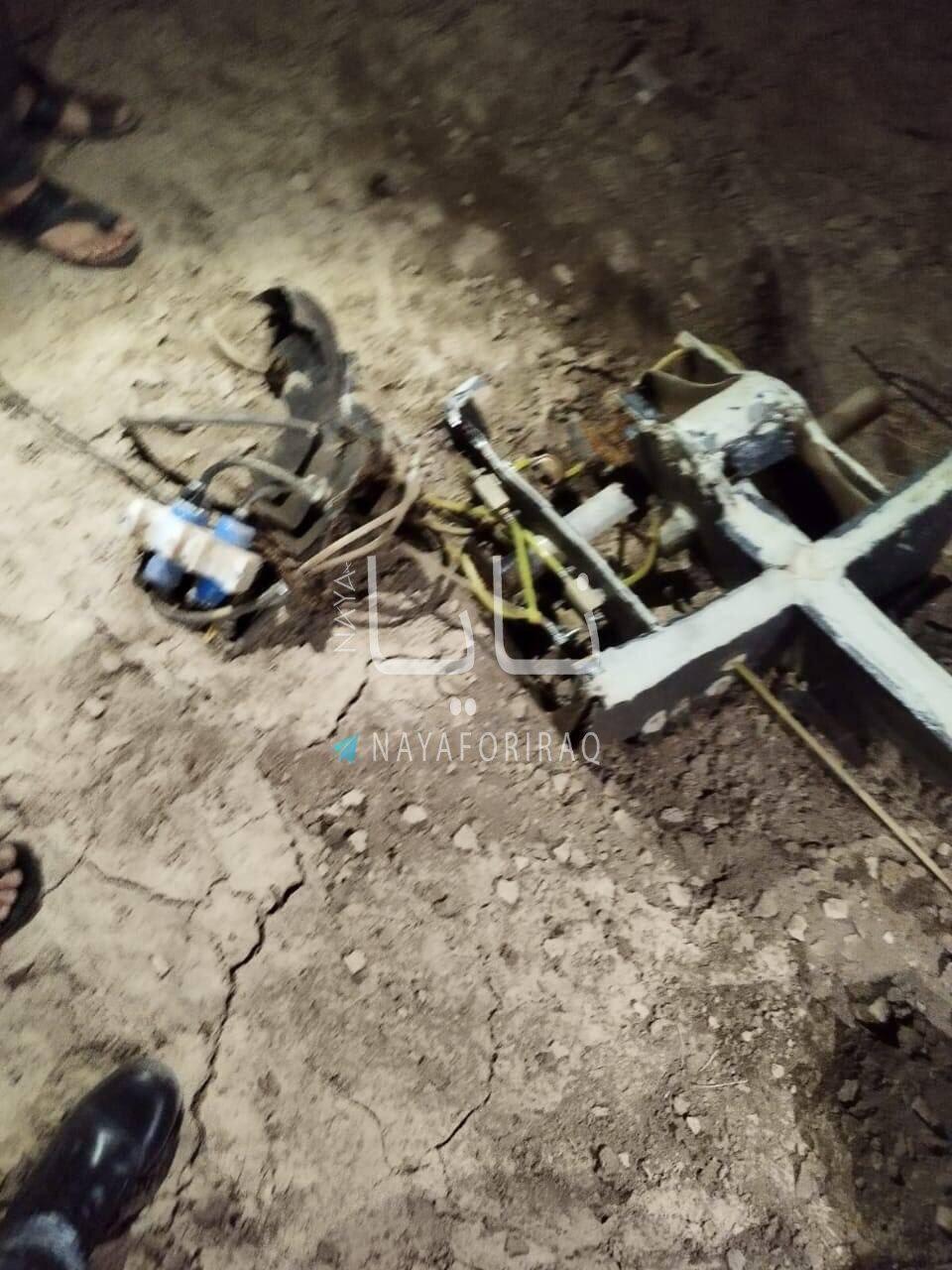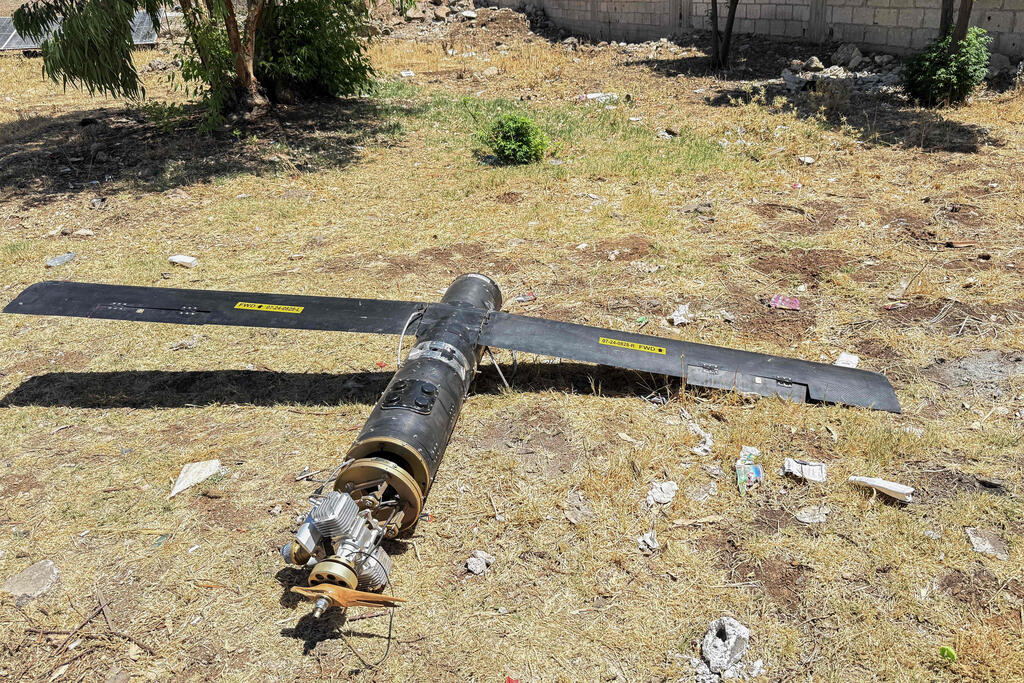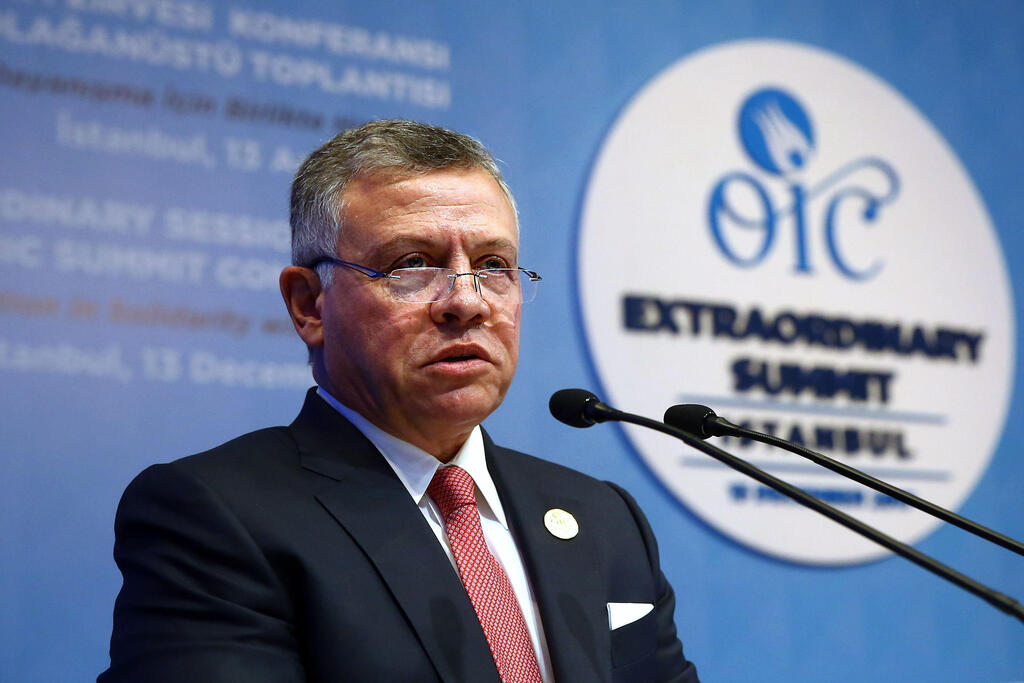Iranian missiles and drones launched toward Israel cross multiple Arab nations along the way. They can often be seen streaking through the skies over Iraq, Syria, Jordan and Lebanon, depending on Tehran’s chosen targets.
Since the war erupted a few days ago, social media has filled with videos and photos from across the region showing these projectiles en route to Israel, as well as debris falling from the sky. Yet, despite these scenes, leaders in these countries are doing their best to avoid being pulled into a full-scale conflict between Iran and Israel.
An Iranian drone shot down by Israeli Air Force
(Video: IDF)
Iraq: Walking a tight rope between Iran, militias and the US
In Iraq, even as pro-Iran rallies were held and videos spread online showing Iraqis celebrating the attacks on Israel, the government is making deliberate efforts to distance itself from the fighting, fully aware of the potential dangers it could bring.
For years, pro-Iranian militias — some with backing from Baghdad — carried out repeated strikes against American targets in Iraq and Syria. They eventually halted their operations after receiving assurances that the United States would withdraw following the fall of Bashar al-Assad’s regime in Syria.
This pause prevented the militias from expanding their attacks to Israel. But with the latest developments, fears are mounting that these groups may resume their activities. The Iraqi government remains caught in a delicate balancing act: maintaining ties with Washington while keeping the militias in check.
Speaking today, Iraqi Prime Minister Mohammed Shia’ al-Sudani warned: “The recent aggression against Iran poses a direct threat to the security and stability of Iraq and the region.” He stressed that Iraq firmly rejects violations of its airspace, continues to act with restraint, and prioritizes the interests of its people above all.
According to Saudi newspaper Asharq Al-Awsat, Baghdad has communicated to the armed militias that they must stay out of the Iran-Israel conflict.
Reports mention intensive talks between al-Sudani and leaders of Shiite parties and militias, where the message was made clear: Iraq does not wish to be drawn into this war. Baghdad has also asked Tehran to avoid targeting American interests inside Iraq.
In a phone call with Iraqi President Abdul Latif Rashid, Iranian President Masoud Pezeshkian said: “The violation of Iraqi airspace to attack Iran is clear evidence of Israel’s crimes. Should the Israeli aggression continue, Iran’s response will be even harsher and more decisive. Iraq must exercise greater caution regarding its borders and airspace.”
Iraqi militias: Ready to act should the U.S. intervene
Meanwhile, the Hezbollah Brigades, a powerful pro-Iranian militia in Iraq, issued a statement declaring: “Iran does not need military support from anyone to deter the Zionist entity. It has enough people and capabilities to humiliate Netanyahu.”
The group added: “While Iran bravely and firmly confronts Zionist aggression, we are closely monitoring the movements of the American military in the region. If the U.S. intervenes in the war, we will strike its interests and bases throughout the region without hesitation.”
The militia further called on the Iraqi government and the ruling Coordination Framework coalition to take responsibility and adopt a firm stance to prevent the war from expanding. According to them, this would require closing the U.S. embassy in Baghdad and expelling American forces, whom they labeled “the clearest and most dangerous threat to Iraq’s security and regional stability.”
Lebanon: Hezbollah exercises caution—for now
Lebanon’s leaders unanimously condemned Israel’s strikes on Iran, but worked behind the scenes to shield their country from being dragged into the confrontation. Hezbollah, while issuing a statement denouncing the Israeli attacks, avoided any threats of retaliation or suggestions of direct involvement.
Weakened by heavy losses in its war with Israel and burdened by internal challenges, Hezbollah currently lacks the capacity to escalate—even if it wanted to.
Once a primary aggressor on behalf of the Shiite axis and “support for Gaza,” Hezbollah has now shifted to encouraging the Houthis in Yemen and supporting Iran from the sidelines. Lebanon’s new leadership made it clear to Hezbollah: Lebanon must stay out of this conflict.
On Friday, Saudi-owned Al-Hadath channel quoted a source close to Hezbollah saying the group would not intervene in the fighting between Israel and Iran.
Over the past two days, Lebanese social media have featured videos of Iranian missiles passing over southern Lebanon on their way to Israel. Meanwhile, Lebanon’s army issued warnings about falling debris from intercepted missiles.
Syria: A crossroads for drones and falling debris
In Syria, numerous videos have surfaced in recent days showing missiles and drones flying across its airspace, along with footage of debris falling inside the country.
Get the Ynetnews app on your smartphone: Google Play: https://bit.ly/4eJ37pE | Apple App Store: https://bit.ly/3ZL7iNv
In one clip, an Iranian drone was seen being intercepted over the village of Saida in rural Quneitra. Another video showed a disassembled fuel tank that reportedly crashed onto a home in the city of Inkhil.
Jordan: Defending its airspace while trying to stay out of it
Jordan continues to make it clear: its airspace will not become a battleground. On Friday, a Jordanian military source announced that Royal Jordanian Air Force aircraft and air defense systems intercepted several missiles and drones that had entered Jordanian skies.
The source explained that these interceptions were carried out following military assessments predicting that missiles or drones might fall on Jordanian territory, including populated areas, risking civilian casualties. He emphasized that Jordanian forces are on round-the-clock alert to defend the kingdom’s borders by land, sea, and air — and will not tolerate any violations of their airspace.
4 View gallery


Still unclear if US involvement in the conflict will grow
(Photo: Atta Kerare, Charly Triballeau / AFP)
The interceptions triggered backlash online from pro-Iranian circles, with some even labeling Jordan an “enemy” in certain media outlets.
Despite Jordan’s efforts to avoid entanglement, several incidents have already occurred. Yesterday, Jordanian authorities reported that three people were injured when “an object fell on a house” in Irbid. Arab media attributed the incident to debris from Iranian missiles. Other videos of impacts inside Jordan have also spread across social media.
Pakistan: Calling out 'Zionist aggression,' but otherwise quiet
While many Arab states condemned Israel’s attack on Iran, one country stood firmly by Tehran: Pakistan. The leadership in Islamabad unanimously approved a resolution expressing full support for Iran in its confrontation with what it called “Zionist aggression.”
Azerbaijan says use of its airspace by any side 'unacceptable'
According to the Iranian Tasnim News Agency, Iranian Foreign Minister Abbas Araghchi spoke by phone with his Azerbaijani counterpart Jeyhun Bayramov, saying: “Israeli aggression against Iran threatens international security, and Tehran will respond decisively.”
Araghchi stressed that the attack was a clear violation of national sovereignty and international law. In response, Azerbaijan’s foreign minister assured that his country would not allow its airspace or territory to be used for attacks against Iran or any other nation.








